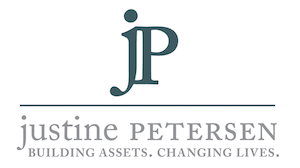W.K. Kellogg Foundation
Justine PETERSEN
Increasing economic opportunity for returning citizens through small business growth
Summary
Each year, approximately 10 million people in the United States return to their communities from jail or prison (returned citizens), and more than 70 million people – roughly one in three Americans of working age – have a criminal record. Racial bias throughout the U.S. criminal justice system means that Black and brown individuals are highly overrepresented in this group.
Many positive signs indicate that investing in returned citizens as employees, business owners, and parents can generate significant returns for their families and broader communities. Unfortunately, returned citizens attempting to reenter the workforce encounter many barriers, such as employer bias, which can drastically reduce employment prospects and earnings potential. Nationwide, more than 40,000 documented collateral consequences of having a criminal record also legally restrict access to business and occupational licensing, financing, housing, voting, education, and other rights, benefits, and opportunities.
It is this context that led the W.K. Kellogg Foundation (WKKF) to partner with the U.S. Small Business Administration (SBA) to pilot the Aspire Entrepreneurship Initiative (Aspire). The purpose of this pilot was to demonstrate an alternate path to economic security for returned citizens who are parents of young children and challenged in obtaining family-sustaining traditional employment. The program was designed to help such individuals start or grow a business to earn a family-sustaining income and strengthen their ability to support their children’s well-being.
WKKF recruited Justine Petersen (JP), a St. Louis–based national financial security organization, to be the lead implementing partner. JP implemented the program in St. Louis and selected local partners to implement Aspire in Chicago and Detroit (Goodwill Industries of Greater Detroit and Southwest Solutions). Nearly 200 small businesses participated in the Aspire pilot over three years.
Participants’ businesses covered a wide range of industries including cosmetology, landscaping, contracting and home improvement, financial investments, real estate, auto mechanics and roadside assistance, tutoring, retail, fashion, and health and wellness.
WKKF asked Root Cause to conduct a purpose- and equity-driven third-party evaluation, which would gauge the program’s results while tapping existing evidence, deeply engaging participants, and strengthening the implementing partners’ capacity to measure and improve their work.
Goals & Results
The Aspire program model is comprehensive and includes household budgeting, credit-building counseling and loans, connection to business and social services, and access to small business loans. Through Aspire’s signature offering, participants gather weekly in a group entrepreneurship class to learn action-oriented small business principles and share their progress and challenges with their peers.
To ensure our evaluation provided value to all of its stakeholders, particularly returned citizens, Root Cause worked closely with WKKF, the SBA, and Justine Petersen to define our collective objectives:
- Demonstrate an improved path to economic security for parents who are returned citizens, which then improves their ability to promote positive outcomes for their children and families
- Incorporate existing evidence, and solidify and document Aspire’s own best practices to advance the broader field interested in this work
- Use an iterative learning process to capture data and actionable findings to improve the program model on a continuous basis
To achieve these objectives, Root Cause focused our work on the following activities.
We Examined Existing Evidence: To help set the stage for the evaluation before Aspire’s launch, we dove into the existing research evidence supporting the key aspects of the program. While we found several decades worth of research showing varying effectiveness of relevant programs, we learned that Aspire was highly unique in its combination of four typically distinct fields: Reentry and Supports for Returning Citizens; Entrepreneurship and Microlending; Financial Counseling, Credit and Asset Building; and Parenting Support and Education.
We Outlined a Theory of Change: We worked with partners to define the Aspire’s intended business, financial and family outcomes for its participating parents, the logic and assumptions for how and why its program model would achieve those outcomes, and its broader impact for the field.
We Applied Learning to Inform the Program Model: The above activities helped us inform the initial program design. Once JP selected the Ice House Entrepreneurship Program as the basis for its business curriculum, we and JP also attended the training together and worked with its provider to shape the program for returned citizens. Tapping into our in-house early childhood expertise, we helped add curriculum around parenting young children while running a small business.
We Developed Measurement Process and Tools: We began with a common participant intake form for JP and its site partners, and developed custom tools for all of the implementing agencies to track participant data while also maintaining their own program databases.
We Deeply Engaged Participants and Aspire Staff: Our greatest source of learning was gathering feedback directly from Aspire participants via surveys, interviews, and in-person. We attended group classes and graduation ceremonies, and ran several focus groups. The parents, often with their children close by, reflected on their life and business situations, Aspire’s value, and how the program could be improved. The staff reflected on their experiences working directly with participants in group and one-on-one settings.
We Applied Ongoing Learning for Continuous Improvement: All along the way, we reviewed the process of implementing the program, challenges, participant demographics, participation, and results. We worked closely with JP and the site partners over the three years, along with WKKF and SBA, to process learning and continuously improve all aspects of the program model.
We Evaluated Final Results: In a more traditional third-party evaluation activity, we analyzed three years worth of pilot results and determined the program’s outcomes for its participants. Additionally, we extracted a number of insights to inform the broader field of efforts supporting the economic security of returned citizens.
Results for Aspire Project Partners
Through the above activities, our evaluation approach helped JP and its implementing partners strengthen both the design and implementation of the Aspire program model, and their capacity to measure and improve their work. Over the three years, improvements included better supporting participants’ dual business owner and parent roles, targeting and increasing recruitment of participants who could receive the greatest benefit, tailoring the program to participants at different business stages and working across different industries, and fostering peer learning.
WKKF and the SBA both benefited from participating in a different and more equitable approach to third-party evaluation for an innovative pilot program – an approach that is more collaborative, learning-oriented, and community-informed. The WKKF evaluation team has since prioritized the broader adoption of this evaluation approach.
Root Cause’s final evaluation report documented strong short- and longer-term financial, business, and parenting/family outcomes for participants. For example, 82% of participants were actively running or working on a business at program completion, compared to 38% at intake. Building off this outcome, 8% of participants reported being unemployed at program completion, compared to 30% at intake. The report also outlines a number of key improvement recommendations for future iterations of the program.
As important as the above results, the Aspire evaluation generated significant insights around returned citizens and entrepreneurship. These include unpacking the complex reality of how entrepreneurs’ small businesses often overlap with their informal, self and traditional employment, and can take a long, cyclical path to earning sufficient revenue to sustain a family. We also highlighted these entrepreneur parents’ immense drive to leave a legacy for their children and lift up their communities via their business efforts.
The quasi-experimental design of the evaluation has now helped build out a more robust base of research evidence demonstrating the value of such comprehensive program interventions to participants, their families, and communities.
About the Partner

W.K. Kellogg Foundation
The W.K. Kellogg Foundation (WKKF), founded in 1930 as an independent, private foundation by breakfast cereal pioneer Will Keith Kellogg, is among the largest philanthropic foundations in the United States. Guided by the belief that all children should have an equal opportunity to thrive, WKKF works with communities to create conditions for vulnerable children so they can realize their full potential in school, work and life.

Justine PETERSEN
Justine PETERSEN (JP) is a nonprofit based in St. Louis, MO, that connects institutional resources with the needs of low- and moderate-income families in order to build assets and create enduring change. JP gives people opportunities to create new futures for themselves and their families by helping them become and stay homeowners, start and run successful businesses, access education, begin and manage personal savings programs.

